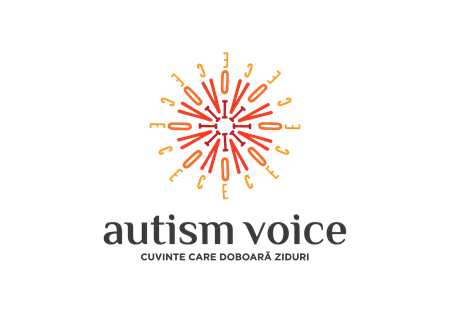ABA without limits: From therapy to the human behavior revolution.
Welcome to the 2025 International ABA Conference — a place where we redefine the understanding of behavioral analysis and expand its applicability beyond autism therapy, opening new horizons in education, business, mental health, and social inclusion.
Over nearly two decades of practice in Romania, ABA has become a standardized and recognized method for autism intervention. Now, with the official regulation of the behavior analyst profession in Romania and its integration into the College of Psychologists, it is time to look beyond traditional boundaries and explore ABA’s impact across diverse fields.
ABA is not just about therapeutic intervention. It is a science that shapes behavior and enhances quality of life at every level — individual, organizational, and social. This year’s conference highlights the role of ABA in:
Education — Optimizing the learning process, supporting students with and without learning difficulties, and managing challenging behaviors.
Business — Creating more efficient workplaces, shaping employee behavior, improving performance, and enhancing organizational dynamics.
Mental Health — Applying ABA principles to treat anxiety, depression, and other emotional and relational disorders.
Autism — Providing personalized interventions from childhood to adulthood and supporting families throughout the therapeutic process.
The Perspective of Individuals with Autism — Emphasizing the crucial role of the experiences and voices of those living with autism in evolving and adapting ABA practices.
Join us as we explore these transformative applications and push the boundaries of what ABA can achieve.

Karola Dillenburger
Karola Dillenburger PhD. is Professor of Behaviour Analysis and Education and Foundation Director of the Centre for Behaviour Analysis at the School of Social Science, Education and Social Work at Queen’s University Belfast. She is a Fellow of the Association for Behavior Analysis-International (ABAI) and the current President of the European Association for Behaviour Analysis (EABA) (2024-2026). She is a Board Certified Behaviour Analyst-Doctoral (BCBA-D) and clinical Psychologist (HCPC).
Professor Dillenburger led the development of the MSc Applied Behaviour Analysis (MScABA) at QUB and was the Course Director of the MScAutism (2008-2025). She developed the Behaviour Technician course at QUB and was involved in the development of the multimedia resource at www.SimpleStepsAutism.com. Her research focuses on evidence-based early intervention for vulnerable children including those diagnosed with autism, behavioural parent training, and parenting children with disabilities across the lifespan, loss and trauma. She actively promotes national and international professional recognition of behaviour analysts across Europe. She successfully supervises many Doctoral Research Students.
Prior to being appointed to QUB over 30 years ago, Professor Dillenburger has worked extensively in child care, education, and therapeutic settings. She has published widely, including nine books, multimedia training resources and websites, and over 110 academic peer-reviewed papers. She frequently delivers national and international keynote addresses in USA, India, Europe, and Australia. She was awarded the Gold Medal from Masaryk University, Brno, Czech Republic.
Presentation at the ABA International Conference 2025
Parent training for families affected by profound autism
Abstract:
Autistic families are much more likely to experience marginalisation, poverty, and exclusion than families not affected by autism. At the same time, applied behaviour analytic interventions are supported by large number of studies that provide evidence of effectiveness in the short- and the long-term. In some parts of the world (e.g., USA, Canada), these procedures are considered 'gold-standard' supports for autistic children, funded largely via health insurance system. Families affected by profound autism, particularly those living in other parts of the world are not able to access these interventions easily. Simple Steps is a freely available multimedia online resource that was developed by parents of autistic children in collaboration with an international team of Board Certified Behaviour Analysts. This presentation argues that Simple Steps provides the basis for parent training. Examples from Simple Steps will be shared to illustrate this point.

Robert K. Ross
Dr. Robert Ross is the President of Ross Consultation a private practice focused on increasing access to high quality ABA services across the globe. Dr. Ross is also the Vice President of Clinical Development and Integration at Biostream Technologies. BiostreamTM, is a leading-edge technology company that uses video gaming software and eye tracking hardware to teach a range of social skills and social behavior. He is also a clinical advisor to TalkidoTM, an augmentative communication support for individuals with limited verbal communication skills and thus struggling to acquired vocal speech. For over 35 years, Dr. Ross has both provided direct services to children and families impacted by ASD, and served as the Chief Clinical Officer at Beacon ABA Services of Massachusetts and Connecticut where he oversaw all clinical, supervisory and staff training. He received his Master's in Applied Behavior Analysis from Northeastern University and his Doctorate from Nova Southeastern University. Dr. Ross directed all research activity at Beacon as well as developed and taught in the Masters and Ph.D programs at Cambridge College for 15 years. He currently provides direct and consultation services to families, schools and educational programs in the U.S, Europe and the Middle East.
He is a founding member and current Past President of the Massachusetts Association for Applied Behavior Analysis (MABA). Dr. Ross is also a past President of the Autism Special Interest Group (SIG) of ABAl, the current ABAI Special Interest Group Chair, former Co-Chair of the Practice Track of the ABAl Annual Conference and has served three terms on the ABAl Practice Board. He has published numerous articles related to autism treatment and presented at conferences throughout the United States, Europe and the Middle East. Dr. Ross is serves as a Board member of the Progressive ABA Council.
Presentation at the ABA International Conference 2025
A Behavior Analytic Approach to teaching Creativity and Playskills in Young Children with ASD
Abstract:
Teaching creativity and imaginative play and is an area that is often not focused on by behavior analysts. One reason for this may be that it is a conceptually difficult topic for a science who’s applications are often considered rigid or robotic. The focus of the talk will be on defining creativity and play from a behavior analytic framework, and then using that framework to highlight instructional practices consistent with our science and established research. The definitions and practices covered in this talk will emphasize establishing basic play skills, shaping and fading with an emphasis on planning for generalization across context and materials. Various strategies to teach creative play, through the use of Object-Action- Language routines (OAL) and visual supports will be discussed. Some of these strategies will include: Matrix training, Video modeling, Visual checklists and Picture Activity Schedules.
Three learning objectives.
- Participants will be able to describe and understand creativity from a behavior analytic perspective
- Participants will be able to give at least three examples of Object-Action-Language Routine to establish basic play behavior.
- Participants will be able to describe three behavior analytic instructional practices that can be used to establish play skills in children with ASD and how to use each to ensure generalization of established skills.

Bobby Newman
Bobby Newman is a Board Certified Behavior Analyst, Licensed Behavior Analyst in New York and Tennessee, and Licensed Psychologist in New York and Florida. Affectionately known as the Dark Overlord of ABA, Bobby is the first author on over a dozen books regarding behavior therapy, the philosophy of behaviorism, the autism spectrum disorders, utopian literature, and fitness as well as several book chapters and training films.
Bobby is the Past-President of the Association for Science in Autism Treatment and the New York State Association for Behavior Analysis.
He is the Executive Director of Clinical Services for Proud Moments. Bobby is also a certified personal trainer, obstacle course racer and marathoner and is an Ambassador for the Great Sportsmanship Programme. Bobby teaches non-violent crisis intervention philosophy and techniques for agencies and families. Bobby was a final four finalist for the 2016 For Those Who Would Humanitarian Award and is a certified cigar sommelier.
Presentation at the ABA International Conference 2025
Sex Education for Individuals Diagnosed with Autism Spectrum Disorders
Abstract:
Many people avoid sex education for individuals with developmental disabilities. They are afraid of making mistakes that will make inappropriate behavior more likely. This is actually an error, as failing to address this crucial area is what often leads to behavioral difficulties. In this talk, we will go over common areas of concern and give very specific "do and don't" statements to guide sex education for individuals with developmental disabilities and Autism Spectrum Disorder in particular.

Judah B. Axe
Dr. Judah Axe is a Professor of Behavior Analysis at Simmons University in Boston, Massachusetts, where he teaches in the on-ground and online master’s and Ph.D. programs. He has spent the last 25 years advancing the skills of autistic children through research and practice. He received his M.A. and Ph.D. in Applied Behavior Analysis and Special Education from The Ohio State University.
Dr. Axe’s lab focuses on teaching verbal behavior, improving social skills, and reducing challenging behavior. He has published over 40 articles and book chapters, and he authored the 10th edition of the textbook, Applied Behavior Analysis for Teachers.
Dr. Axe serves on the editorial boards of five research journals in ABA. He also serves on the Advisory Board of the B.F. Skinner Foundation, on the Scientific Council of the Organization for Autism Research, and as a trustee of the Cambridge Center for Behavioral Studies. He previously served as a co-coordinator for the Verbal Behavior area of the Association for Behavior Analysis International conference and Chair of the Verbal Behavior Special Interest Group (VB SIG). He was overjoyed to receive the 2021 Award for Excellence in Teaching Verbal Behavior from the VB SIG.
Presentation at the ABA International Conference 2025
Antecedent Interventions for Challenging Behavior
Abstract:
Intensive teaching is often needed for students with autism and related disabilities, but it often results in challenging behavior motivated by escape from the teaching situation. There are several antecedent, or preventative, interventions for decreasing challenging behavior during intensive instruction, including errorless teaching, the high probability request sequence, and presession pairing. The presenter will discuss the conceptual and procedural aspects of these interventions and share research on these techniques. This will include a discussion of reflexive conditioned motivating operations (CMO-R), mand training, functional communication training, and conditioned reinforcement.

Lorri Shealy Unumb
Lorri Shealy Unumb is a lawyer, professional speaker, law professor, mother of three young adult boys, and an internationally renowned autism advocate.
She began her legal career clerking for a United States District Judge in Charleston, South Carolina, and then moved to Washington, D.C. to practice law with the United States Department of Justice. She enjoyed a fulfilling career as an appellate litigator, arguing civil cases in Circuit Courts all over the United States.
After working as a law professor at law schools in D.C. (George Washington University) and Charleston, Lorri began running and teaching advocacy courses at the U.S. Department of Justice’s National Advocacy Center. During the same period, she hosted an award-winning weekly cable TV show called “The Law with Professor Lorri.”
Following her firstborn son’s diagnosis with autism, Lorri began working in autism advocacy as a volunteer, writing ground-breaking autism insurance legislation for South Carolina (“Ryan’s Law”) that passed in 2007 and served as the catalyst for the national movement toward autism insurance reform. In recognition of Ryan’s Law, Lorri was awarded the Autism Society of America 2008 “Parents of the Year” award (along with her husband Dan). She then was recruited by the New York-based nonprofit Autism Speaks to advocate full-time on behalf of individuals with autism.
Alongside her career with Autism Speaks, in 2010 Lorri founded the Autism Academy of South Carolina, a non-profit, year-round diagnostic and treatment center for individuals with autism; in 2019, the board of directors voted to rename the academy “The Unumb Center for Neurodevelopment” in honor of Lorri & Dan’s extensive national contributions in the autism field. Lorri & Dan also wrote the first-ever comprehensive textbook on legal issues related to autism, called “Autism and the Law.” Additionally, Lorri is in her 19th year of organizing and conducting the annual “Autism Law Summit,” a national gathering of parents and professionals who advocate for legal and policy changes to better the lives of individuals with autism. Finally, in 2018, Lorri was appointed by the governor of South Carolina to serve as a Commissioner for the SC Department of Disabilities and Special Needs, which administers several of the state’s Medicaid waivers.
In 2019, Lorri was recruited by the nonprofit trade association The Council of Autism Service Providers; as CEO, she has led the association into a period of rapid growth and increased visibility.
For her local, national, and international advocacy efforts, Lorri has been recognized with
- the 2012 NASCAR Foundation’s Betty Jane France Humanitarian of the Year Award;
- the Jefferson Award for Public Service (Charleston, SC);
- the Professional Women in Advocacy “Excellence in a State Campaign” 2014 Award; and
- the Civitan International “World Citizenship” 2021 Award.
Her work has been profiled on CNN, on NPR’s “Morning Edition,” and in Town&Country magazine, from whom she received one of three 2009 “Women Who Make a Difference” awards. She is also profiled in the American Academy of Pediatrics book “Autism Spectrum Disorders: What Every Parent Needs to Know.”
Lorri is a magna cum laude/Phi Beta Kappa graduate of the University of South Carolina (Journalism, 1990; Political Science 1990; Law 1993).
Presentation at the ABA International Conference 2025
ABA and Autism: Effecting Change through Effective Advocacy
Abstract:
The New York Times once wrote that “no disability claims more parental time and energy than autism.” Families dealing with autism face many hardships, not the least of which is financial hardship.
One reason for the financial hardship has been the failure of healthcare systems to cover treatments for, and sometimes even diagnosis of, autism. As recently as the turn of the millennium, it was widely accepted that health insurance did not cover even the standard treatments for autism.
Sadly, few individuals with autism reach their potential because, in the absence of consistent funding, most do not have access to treatment that is appropriate in quality and quantity. Appropriate care is both difficult to find and difficult to afford. A United States government agency wrote that the “delivery and organization of care for ASD is very fragmented, with pieces scattered about in the primary care, school, and specialty clinical settings. It is left to the families and caregivers of patients with ASD to find and assemble these pieces.”
In this address, autism mother and attorney Lorri Unumb will share her personal parental experience with her son’s autism diagnosis and how it led her into full-time advocacy on behalf of individuals with autism, including a leading role in passing nearly 50 autism insurance laws across the United States.

Adam Ventura
Adam Ventura, MS, BCBA, is a pioneering leader in the integration of artificial intelligence and behavior science. As the Founder and CEO of Intraverbal AI, Adam's current focus is on leveraging AI to transform the field of applied behavior analysis (ABA), making data-driven insights and innovative tools more accessible to behavior analysts. A graduate of Florida International University (FIU) and a long-standing adjunct professor, he combines academic expertise with cutting-edge technology. Adam also co-founded the Miami Association for Behavior Analysis, fostering leadership and growth in the ABA community. His entrepreneurial pursuits include serving as Chairman of Bueno Ventures, Inc., where he leads global initiatives aimed at creating sustainable, behavior-focused enterprises. Previously, he founded and scaled World Evolve, Inc., a multi-state ABA service provider, which he successfully exited in 2018. An established author, Adam has contributed extensively to literature on ethical practices and leadership in behavior analysis, now with a sharp focus on AI's transformative role in the field.
Presentation at the ABA International Conference 2025
FROM ARTIFICIAL TO AUGMENTED: Reimaging Education with Behavior Science and Intelligent Support
Abstract:
Picture a classroom where each student’s journey is individually guided, every teacher’s decision is grounded in data, and every educational moment is enriched by immediate, meaningful feedback. This isn’t a distant dream. Augmented intelligence (AI), technology designed to enhance rather than replace human insight, is making such classrooms possible. In this talk, we’ll discuss how this approach differs from traditional artificial intelligence, which often operates independently, and focus instead on how augmented intelligence amplifies the educator’s expertise. We’ll explore how personalized, AI-assisted instruction, evolving instructor roles, and data-informed decision-making rooted in the principles of behavior science are poised to reshape the educational landscape for teachers, school leaders, and the learners they serve.
We’ll begin by examining the emergence of personalized instruction powered by augmented intelligence. These systems continuously adapt tasks, pacing, and supports based on each student’s performance data, reinforcing key skills and improving engagement. Next, we’ll consider how instructor roles are evolving, from primarily delivering content to skillfully leveraging data and insights. By interpreting continuous streams of analytics, teachers can adjust their strategies in real-time, ensuring that classroom decisions are informed by evidence and aligned with best practices in behavior science. Finally, we’ll delve into the power of data-driven decision-making as administrators and educators harness these tools to refine curricula and instructional methods, leading to more dynamic, responsive learning environments.
By integrating the foundational lessons of behavior science with the forward-looking capacities of augmented intelligence, this talk will empower educators to create classrooms that are more tailored and effective. As we step into this new era, you’ll gain the perspective and tools to guide students toward success with greater precision and impact. This is your opportunity to help shape a future where human expertise and intelligent support coalesce into an experience that redefines what it means to learn, and to teach.
Presentation Objectives
- Differentiation: By the end of the presentation, attendees will be able to identify at least two key differences between artificial intelligence and augmented intelligence in the context of classroom instruction.
- Application of Data: Following the session, attendees will be able to describe one method for using augmented-intelligence-generated data to adjust teaching strategies in real-time, thereby enhancing student engagement and learning outcomes.
- Implementation Planning: Upon conclusion of the talk, attendees will be able to formulate a brief action plan that outlines how they will incorporate augmented intelligence tools into their current or future instructional practices to support more personalized and effective learning experiences.

Francesca Degli Espinosa
Like many in the field of ABA, Francesca’s verbal behaviour about behaviour analysis was initially largely shaped by a young child with autism who had very few words. She defines her career as the product of a series of fortunate events that eventually lead to being the lead clinician for the first UK-based EIBI outcome study and to a PhD in Psychology under the supervision of Prof. Bob Remington, at the University of Southampton, UK.
Francesca’s current academic pursuit is the translation of cognitive and developmental descriptions of key processes in language and childhood development into an analysis of controlling variables, with the aim of deriving a technology to remediate deficits in children with autism. Her clinical and research work with humans focuses on early social responding, generative verbal behaviour and theory of mind. She was the 2023 recipient of the “Clinical Supervisor Award in Verbal Behavior” from the VB Special Interest Group of ABAI. Presently, she runs a small diagnostic and assessment clinic in the UK, and has taught advanced behaviour analysis in a number of postgraduate programmes in Italy, the UK and the US. She is a past board member of the B.F. Skinner Foundation. She lives in Southampton, UK, with her husband and her two dogs, who daily challenge her knowledge and skills and have taught her to be a better behaviour analyst for the humans she serves.
Presentation at the ABA International Conference 2025
Contacting leads to knowing: A verbal behaviour analysis of Theory of Mind
Abstract:
Theory of Mind is typically used as an umbrella term to refer to, but also to interpret, a collection of responses that involve humans’ ability to explain and predict others’ behaviour based on an understanding of others’ mental states, such as beliefs and desires. Not only is the construct of Theory of Mind universally accepted in the field of psychology, but it has also come to represent a theoretical system from which to explain additional social and cognitive processes in both typical and atypical children and adults, with false-belief tasks becoming its litmus test. Challenging the basic premise that mental states cause behaviour, I will firstly deconstruct false-belief tasks into their individual verbal components. Secondly, I will attempt to answer the question of what it is that we as humans do when we engage in the complex verbal behaviour regarding another person’s behaviour through an analysis of its component controlling repertoires. Rooted in early social responding, I will thirdly provide an account of its development from infancy to early childhood and show how an applied technology can further and validate both a conceptual and experimental analysis of the subject matter.

William L. Heward
William L. Heward, Ed.D., BCBA-D, is Professor Emeritus in the College of Education and Human Ecology at The Ohio State University. He has taught at universities in Brazil, Japan, Portugal, and Singapore and lectured or given workshops in 25 other countries. A Past President and Fellow of the Association for Behavior Analysis International, Bill’s publications include co-authoring the books, Applied Behavior Analysis, Exceptional Children: An Introduction to Special Education, and Let’s Make a Contract: A Positive Way to Change Your Child’s Behavior. Awards recognizing Dr. Heward's contributions to behavior analysis and education include the Fred S. Keller Behavioral Education Award from the American Psychological Association's Division 25 and the Ellen P. Reese Award for Communication of Behavioral Concepts from the Cambridge Center for Behavioral Studies. Bill’s research interests include promoting the generalization and maintenance of newly learned skills, increasing the effectiveness of group instruction, and improving the success of students with disabilities in general education classrooms.
Presentation at the ABA International Conference 2025
Expanding Our Curiosity, Competence, and Impact: Take a Risk
Abstract:
Seventy years ago, B.F. Skinner proposed that behavior analysis could be a general-purpose science relevant to the entire human experience. Several trial balloons and groundbreaking experiments in the 1950s and early 60’s gave rise to applied behavior analysis (ABA), the applied wing of the natural science Skinner founded and championed. In the ensuing decades behavior analysts applied their science to an ever-growing range of socially significant domains. Several historic and current extensions of ABA with large-scale impact and world-changing potential will be reviewed. The talk will conclude with a description of actions behavior analysts can take to help fulfill ABA’s tremendous promise to help make the world a better place.

Anika Costa
Anika Costa, M.S. Ed, BCBA
Founder and Chief Performance Officer, The Operant Teacher, LLC
Anika Costa, M.S.Ed., BCBA, is the founder and chief performance officer of The Operant Teacher, LLC, a consulting firm dedicated to helping professionals, organizations, and educators optimize performance through science-driven strategies. With over 25 years of experience as a behavior analyst, instructional designer, and educator, Anika is a leading expert in translating research into real-world applications that improve learning, leadership, and organizational effectiveness.
A board-certified behavior analyst and instructional design specialist, Anika works with behavioral organizations, therapy centers, schools, and corporate teams to implement data-driven coaching, training, and leadership strategies. Her work integrates organizational behavior management (OBM) principles, instructional design, and performance analysis to create sustainable behavior change and lasting impact.
Anika is also an accomplished author, keynote speaker, and faculty member, dedicated to equipping professionals with the skills they need to thrive. Whether in consulting, coaching, or teaching, she is passionate about helping individuals, systems, and organizations achieve their full potential.
Presentation at the ABA International Conference 2025
Quick Wins! Using Behavior Science to Accelerate and Sustain School Improvement
Abstract:
Behavior practitioners aiming to initiate new projects or foster meaningful change can attract support and gain momentum by concentrating on visible, low-effort areas with valuable outcomes for stakeholders. In essence, these are Quick Wins. However, this is just part of the equation. While securing buy-in and generating momentum are crucial, ensuring that stakeholders sustain the behaviors necessary to reach goals is essential for long-term success. Ultimately, it all comes down to behavior: that of the students, faculty, staff, and school leaders. Quick Wins guides those responsible for implementing behavioral strategies, classroom improvements, or school enhancements on how to utilize behavioral science effectively to optimize stakeholder engagement. This presentation aids participants in understanding how to apply Organizational Behavior Management (OBM) principles to create momentum and achieve lasting change, based on insights from the best-selling book, Quick Wins! It will provide school leaders, consultants, and improvement teams with strategies to leverage behavioral science for initiating and sustaining meaningful change.
LEARNING OBJECTIVES:
- Identify the common mistakes behavior practitioners make when initiating change efforts in schools.
- Describe the concept of quick wins and explain how they can generate buy-in and momentum for new initiatives.
- List the key characteristics of quick wins that make them effective in the early stages of change.
- Explain how leveraging behavioral science can help sustain stakeholder behavior and achieve long-term success in school improvement efforts

Neil Martin
Dr Martin has been working as a behaviour analyst since 1990. He received his PhD from the University of Reading (UK) in 1998, became a Board Certified Behavior Analyst in 2002, an accredited higher education teacher in 2003, a doctoral level BCBA in 2009, and an Institute for Credentialing Excellence Certified Credentialing Professional in 2022. He was one of the first BCBAs in the UK and he helped develop the first BACB-approved course sequence in the UK, and the first outside the US. Dr Martin has published research in journals such as the Journal of Applied Behavior Analysis, The Behavior Analyst, Research in Developmental Disabilities and the Journal of Autism and Developmental Disorders, and he has special interests in the use of technology, media and software related to teaching and research.
In April 2015 Dr Martin became the BACB’s Director of International Development. He provides help and support to countries in terms of developing the necessary infrastructure for the emergence of Behaviour Analysis as a recognized profession.
Presentation at the ABA International Conference 2025
Do Words Matter? A Critique of Some of Our Technical Terms.
Abstract:
This presentation aims to critically examine some of our cherished technical terms. The challenge for behaviour analysts who must liaise with other professionals and stakeholders is both to remain accurate and true to the science whilst communicating in a way that is easily understood. Some of the jargon used by behaviour analysts is difficult to explain in everyday language. Some of our terms exist based on historical precedent. Some of our terms may be used incorrectly in a technical sense. Does this matter? Maybe, but perhaps an ongoing systematic review and clarification of our technical language is important as the field emerges and evolves around the world and because we predominantly live in verbal communities that do not share our radical behaviourist perspective.

Paul Gavoni
Dr. Paul "Paulie" Gavoni has spent decades helping individuals and organizations elevate their performance and improve behaviors across a wide range of industries, including education, human services, and even combat sports. Over his career, he's held roles like COO, Professor, Vice President, School Administrator, and School Turnaround Manager—demonstrating a deep mastery of Organizational Behavior Management (OBM) and a passion for making a meaningful impact. As the Director at the Professional Crisis Management Association, founder of Heart & Science International, LLC, and co-founder of The Behavioral Toolbox, Paulie provides practical, science-driven strategies to tackle even the toughest challenges.
Paulie is committed to using behavior analysis to bring out the best in people and teams. He’s known for delivering straightforward, candid insights that cut through the noise, but he doesn’t stop at identifying problems—he delivers real, workable solutions. With a mix of no-nonsense honesty and a good dose of humor, Paulie makes complex issues understandable and actionable, earning him a reputation as a trusted and effective problem-solver.
A Wall Street Journal and USA Today best-selling author, Paulie's numerous #1 best-selling books and top-rated podcasts bring innovative and practical approaches to a wide audience, bridging the gap between theory and real-world application.
In the world of combat sports, Paulie is known as Coach Paulie Gloves. As a former Golden Gloves Heavyweight Champion, he’s brought his competitive experience to coaching, helping fighters achieve championships at every level—from local to international. His unique ability to apply behavioral science principles to training has shown that peak performance is possible for anyone with the right guidance.
As a sought-after speaker, Paulie combines deep expertise with a down-to-earth and engaging style, connecting with audiences around the globe. His philosophy centers on integrity, continuous growth, positive transformation, and practical impact—making him a genuine force for meaningful change.
Presentation at the ABA International Conference 2025
From Intention to Impact: OBM, Systems, and Adaptive Intelligence in Organizations
Abstract:
Behavioral challenges are emerging across industries—from performance gaps and disengagement to toxic work cultures and resistance to change. Addressing these challenges takes more than motivational speeches or top-down directives. It takes strong leadership and well-designed, values-driven systems that reinforce the behaviors needed for people and organizations to thrive. Organizational Behavior Management (OBM) offers a practical, science-based approach for doing just that—ensuring the right behaviors are reinforced at every level, from frontline teams to the C-suite.
From an evolutionary standpoint, survival depends on behaviors selected by their consequences. The same is true in organizations: behaviors that produce value must be consistently reinforced to drive sustainable success. Leaders must zoom in and out—analyzing moment-to-moment contingencies (proximal causes) and long-term reinforcement patterns (ultimate causes) to shape cultures of accountability, adaptability, and performance.
But performance isn’t just about managing others—it’s also about developing Adaptive Intelligence within ourselves and our teams. That means equipping people to regulate their behavior, navigate internal discomfort, and act in alignment with shared values—even in the face of stress, uncertainty, or external pressure. Leadership, in this context, isn’t about control. It’s about cultivating alignment—between behavior and values, intentions and actions, systems and outcomes.
This session delivers practical OBM strategies for building high-performing systems, enhancing service delivery, and growing leadership capacity across all levels of an organization. Participants will leave with tools to drive lasting behavior change—ensuring not just better leadership, but stronger, more resilient organizations.

Anca Dumitrescu
Anca Dumitrescu has had her specialization in Applied Behavior Analysis since 2010, and has been certified as the first BCBA behavior analyst in Romania. She is one of the most important national trainers, being involved both in the development of short-term training courses for psychologists and ABA therapists, and within Clemson-Romania – Verified Course Sequence program in applied behavior analysis, initiated in 2016.
Anca founded Autism VOICE with Claudia Matei and Oliviana Giura, the organization through which she managed to develop the first quality standards in Romania in the therapy of children with ASD and the first specialist training projects at the national level. She is involved in coordinating programs within the two Autism Voice centers, in actions to regulate the status of behavior analysis in Romania, in awareness campaigns, lobby & advocacy and especially in projects that support families of children with ASD, development disorders and their therapy. Anca is also the Scientific Coordinator of Bucharest ABA International Conference and President of ABA Romania Institute.
In 16 years of experience and active involvement in the field, she made possible not only the development of behavior analysis in our country and services for children, but also the consolidation of the status of specialists, offering them an ethical guide for practice and all the academic information necessary for practice.
Presentation at the ABA International Conference 2025
Meaningful ABA: Standards adding value to ASD intervention
Between scientific rigor and real-life interventions
Abstract:
The standards in ABA therapy are not just a formality or a set of bureaucratic rules – they represent the foundation that ensures coherence, efficiency and ethics in interventions dedicated to children with autism spectrum disorder. In the absence of some clear benchmarks, the intervention risks becoming chaotic, dysfunctional and, sometimes, even harmful through inconsistency or unnecessary overuse.
This presentation brings to the forefront the idea that complying with the minimum standards is essential to provide interventions with direction and meaning, but also that these standards must be applied with discernment, in an individualized way, anchored in the needs of each child and in the context of each family.
We will explore together:
- What a well-structured intervention means, and why without this structure, progress is often minimal;
- How we can avoid extremes: unnecessary rigidity, but also creativity lacking scientific basis;
- What is the role of the family in maintaining the direction of the intervention and how we ensure that efforts are aligned, not dispersed.
A very special moment of the presentation will be the dialogue with an adult diagnosed with autism in childhood, recovered through an intensive ABA program. His perspective offers a vivid example of how meaningfully applied standards can change not only behaviors, but entire lives.
This theme is, in essence, an invitation to professional and human responsibility: how can we keep science and soul together in our work with children and their families?

Daniela Bololoi
Presentation: Advocacy in Autism: Pathways to Equal Opportunities

Claudia Matei
BCaBA-accredited psychologist and behavior analyst, Claudia has 18 years of experience working with children with ASD and other developmental disabilities. She currently coordinates educational programs at Autism Voice, actively contributing to the training of the community of specialists in autism. She holds applied behavioral analysis (ABA) workshops for parents and professionals, with the aim of building an effective partnership between the family and the therapist.
Claudia believes that every child has the resources to progress when they receive caring and structured support. Through her work, she supports families and professionals to build concrete steps that transform each acquired skill into a secure foundation for child’s independence.
Presentation at the ABA International Conference 2025
Meaningful ABA: Standards adding value to ASD intervention
Between scientific rigor and real-life interventions
Abstract:
The standards in ABA therapy are not just a formality or a set of bureaucratic rules – they represent the foundation that ensures coherence, efficiency and ethics in interventions dedicated to children with autism spectrum disorder. In the absence of some clear benchmarks, the intervention risks becoming chaotic, dysfunctional and, sometimes, even harmful through inconsistency or unnecessary overuse.
This presentation brings to the forefront the idea that complying with the minimum standards is essential to provide interventions with direction and meaning, but also that these standards must be applied with discernment, in an individualized way, anchored in the needs of each child and in the context of each family.
We will explore together:
- What a well-structured intervention means, and why without this structure, progress is often minimal;
- How we can avoid extremes: unnecessary rigidity, but also creativity lacking scientific basis;
- What is the role of the family in maintaining the direction of the intervention and how we ensure that efforts are aligned, not dispersed.
A very special moment of the presentation will be the dialogue with an adult diagnosed with autism in childhood, recovered through an intensive ABA program. His perspective offers a vivid example of how meaningfully applied standards can change not only behaviors, but entire lives.
This theme is, in essence, an invitation to professional and human responsibility: how can we keep science and soul together in our work with children and their families?

Andreea Stroe – Matauan
I am a Specialist Experiential Psychotherapist, BCBA Behavior Analyst, ANC accredited Trainer and the mother of two boys – Sebastian and Andrei. I have been working for over 16 years with children and adolescents diagnosed with autism spectrum disorder and other developmental disorders and with their families. My practice emphasizes the relationship, orientation to the specific needs of the person and open communication. I work to have a neurodiversity-affirming approach and seek to continually develop. I am happy to share my knowledge and experience in consulting, supervision and mentoring sessions, as well as through the courses and group programs that I design and organize for professionals and parents.
Presentation: Community and Collaboration in ABA: Lessons from a Sustainable Transformation Project Toward NDBI

Ana Bogdan
Ana Bogdan completed her training in cognitive-behavioral therapy, being a behavior analyst and clinical psychologist.
Ana also graduated a specialization course in applied behaviour analysis at the University of North Texas (U.S.A.), Department of Behavior Analysis and the Master of Clinical Psychology.
She participated at the continuous training courses “Techniques of cognitive-behavioral psychotherapy”. Later on, she participated with works in the field of psychotherapy and at the annual conference ABA Bucharest International Conference Bucharest, showing constant interest in her personal development.
Presentation at the ABA International Conference 2025
ABA in the development of mental health
Abstract:
ABA (Applied Behavior Analysis) is a science-based approach used primarily in the treatment of autism spectrum disorders, but also for other conditions involving challenging behaviors or learning disabilities. In the context of mental health, ABA can be used to help modify negative behaviors and support the development of adaptive skills.
ABA can provide a structure within which new behaviors can be learned, self-destructive behaviors can be reduced, and coping skills can be developed to improve quality of life. For example, in the treatment of severe depression, ABA can help with techniques that motivate patients to learn and apply positive behaviors (for example, establishing daily routines or engaging in activities that bring satisfaction). ABA may be integrated into cognitive behavioral therapy (CBT) or other approaches, having a significant impact on how a person interacts with their environment and copes with stress.
Although it is most often associated with autism treatments, it can also be used to support mental health in general. Here are some ways ABA can help improve mental health:
Improving social and self-regulation behaviors: ABA helps individuals learn essential social skills and regulate their behaviors. For example, therapy can teach a person how to cope with stress or anxiety more effectively.
Reducing problem behaviors: ABA can help identify and change negative or dysfunctional behaviors (such as social isolation, aggression, or self-harm), which can be associated with various mental health conditions.
Creating routines and structures: ABA works with patients to establish structured and predictable routines, which can reduce anxiety and improve emotional stability.
Promoting coping skills: Through ABA, individuals can learn effective coping techniques to deal with difficult or traumatic situations, which can support their long-term mental health.
Increased independence: ABA helps people acquire skills to function better in everyday life, which can increase self-confidence and a sense of self-worth, which are essential aspects of mental health.
The effectiveness of ABA in the field of mental health depends largely on its correct application and adaptability to the individual needs of the patient.

Camelia Crismariu
Essential Life Skills – Using Public Transportation

Alina Mirela Craiu
Alina Mirela Craiu has a double specialization: clinical psychology and special psychopedagogue and has been working in supporting children diagnosed with autism and their families for over 17 years.
She is the founding president of the Butterfly Club Association and, over time, she has developed a series of training programs for teachers on the topic of school inclusion of children with ASD and ADHD, as well as support projects for parents.
In recent years, she has developed training programs for parents and therapists who work with adolescents with autism, emphasizing the need to prepare them for puberty, sexual education and the development of children's personal autonomy skills. She provides support to families through psychoeducational and psychological counseling sessions and programs to increase their life quality.
Presentation at the ABA International Conference 2025
Preparing the child with autism for puberty: when do we start and what aspects do we aim for?
Abstract:
Puberty is a time of many changes in the life of a child with autism and their family. From hormonal changes to physiological changes to the restructuring of neural networks. Physical and hormonal changes can exacerbate the basic difficulties of autism – such as, the sensory sensitivities, emotional regulation problems and repetitive behaviors – so that the level of functioning can deteriorate with the entry into adolescence.
In everyday life, these changes will lead to behaviors that can sometimes be difficult to manage. Mood swings may manifest more often, and the behaviors that occur at these times become increasingly difficult to regulate due to the physical capacity of the preadolescent. Sexual behaviors begin to appear and greatly influence the inclusion of the preadolescent in the peer group, but also his own safety. Body hygiene and the way in which the preadolescent takes care of his body have an impact on his health and relationships with those around him. In the case of girls, the appearance of menstruation requires special care.
Although the physiological changes are predictable, many intervention programs and complementary therapies do not explicitly include preparation for puberty. As a result, many parents and therapists feel unprepared, and children may exhibit confusing behaviors, heightened emotional expressions, and social difficulties as their bodies change.
Studies show that early development of personal hygiene and daily living skills has a major impact on the personal autonomy and quality of life of children with autism and their families.
This paper aims to bring to the forefront the need to address early those skills that the child with autism needs during puberty.
Following the practice, three major areas emerge: personal hygiene, emotional management, and sex education. Personal hygiene is all the more necessary since we are also talking about girls who need special care (which seems easy but requires multiple skills).
Adolescents with ASD may exhibit inappropriate sexual behaviors due to insufficient understanding of puberty and lack of sex education. Specific education and development of social skills can make a difference.
Depression, anxiety, and eating disorders are more common in autistic adolescents. But aggressive behavior can also intensify during this period. The existence of targeted programs through which parents benefit from parenting education and training specific to these situations can help the child adapt to the changes that are coming.
The skills that are part of these areas can bring autonomy to the life of the child with autism and freedom and balance to the life of his family. A parent who does not have to bathe his 13-year-old child is a parent whose stress level is lower.
Psychoeducational interventions need to involve the development of key skills that the child with autism can rely on during this specific period in his life. And especially to aim to increase the degree of personal autonomy.
Puberty preparation should start early because the specifics of Autism Spectrum Disorder show us that learning and developing skills require time and practice. The more the child's family is prepared, trained and supported in implementing psychoeducational interventions with puberty-targeting goals, the more the child has a long-term chance of reaching their potential and having a greater degree of autonomy. Puberty preparation programs (such as the EERS Program) have the potential to facilitate social inclusion and increase personal safety for young people with ASD.
Keywords: autism, puberty, sex education, personal autonomy, early intervention.

Alexandra Ghilinta
Alexandra Ghilința is a speech therapist at the Activity Association for Therapeutic Intervention for Children and Families. She graduated the Faculty of Psychology and Educational Sciences, specializing in Special Psychopedagogy at the University of Bucharest, and followed the master's program in Speech Therapy in Communication Processes. Alexandra deals with identifying the language disorders faced by children with autism within the association, developing the intervention plan and applying correction methods according to their individual characteristics. Also, Alexandra combines the principles of ABA therapy in speech therapy sessions, believing that, through structured and repeated activities, the little ones will improve their communication and social interaction skills, the latter representing the foundation for successful integration into the social environment.
She also participated in the ABA International Conference 2023, as a lecturer, with the presentation Time-out. How can parents use it correctly?
Presentation at the ABA International Conference 2025
Applying ABA principles in learning disorders
Abstract:
Currently, ABA therapy has a wide applicability, being used in various contexts.
This paper argues the importance of positive reinforcement in changing behaviour and implicitly the successful maintenance of acquired skills. It also presents how to eliminate problematic behaviours that appear in reading and writing and emphasizes the importance of the structured and repeated activities.
At the ABA-2025 International Conference I will present what are the learning disorders and how ABA principles can be successfully used in speech therapy, within them, to improve the attention, the social skills, but also the academic results.

Catalina Nicolescu
My expertise integrates the know-how of the JASPER trainer, accredited by Kasari Autism Research Lab UCLA Semel Institute for Neuroscience & Human Behavior, BACB accredited Registered Behavior Technician, trainer and speaker.
I am Cătălina Nicolescu and I remember my first steps in discovering and practicing ABA therapy. It started in 2006 at the "Horia Moțoi" Center. Many years have passed and I have developed my skills as a home-based, shadow therapist and coordinator.
I have always sought to learn new scientifically validated approaches and practice them as faithfully as possible, each stage of my professional evolution having one goal: significantly improving the quality of the life of children diagnosed with autism. I have always wanted to pass on what I practice and learn, so I organized workshops for parents and therapists in the country, being an accredited ANC trainer; I have also presented papers in many Conferences/Congresses at the national level; BACB accredited RBT; having also completed the Romania BCaBA Alternate Pathway Course Sequence training course.
Starting with 2019, I focused on the natural Environment Teaching (NDBI) and applied the JASPER approach, offering these services to young children.
Starting with 2024, I exited the DAAL autism project umbrella, and my work became more complex and challenging, having collaborations with Alina Vlad, and having the role of the mentor for the parents that are part of the program developed by her: FOCUS.
My knowledge goes to parents and therapists through the courses recorded for the www.autism.ro platform, continuing the collaboration with Damian Nedescu.
I organize mentoring groups and all the events I support in the country have one single goal: the development of play and communication in children with ASD.
The way of playing in children with ASD is affected in different ways, and this is why I strongly believe that learning through play is a natural and appropriate way to develop language skills, play, new concepts, problem solving skills, flexibility in thinking, creativity development, the spontaneity and symbolization needed by young children in social interactions. Playing should be fun and rewarding, but also an opportunity to learn for the child.
Presentation: Does Your Child Imitate Spontaneously? How to Build Imitation as a Fundamental Element in Early Social, Language, and Emotional Development

Adriana Bălșanu
Psychotherapist and Clinical Psychologist

Ramona Gheorghe
- Head Physician, child and adolescent psychiatrist and Adlerian psychotherapist, with 12 years of practice in hospital and outpatient clinics, coordinator of multidisciplinary assessment and intervention teams in mental disorders in children and adolescents, lecturer at Generatia Foundation of the Psychiatry course of the child and adolescent, the Developmental Disorders course and the Adolescent Pathology course;
- Member of the Romanian Association of Psychiatry and Psychotherapy;
- Member of the Romanian Association of Child and Adolescent Psychiatry and Associated Professions;
- Member of the European College of Psychoneuropharmacology;
- Member of the Romanian Federation of Psychotherapy
- Member of the Adlerian Psychology and Psychotherapy Association
- Trainer accredited by the Ministry of Labour.
Presentation: Neurodevelopmental Disorders and Gender Dysphoria

Nicoleta Mariana Orlea
Nicoleta Mariana Orlea is Director of fundraising and Communication within Autism Voice, speaker, trainer, and a freelance fundraising consultant for non-governmental organizations, as well as a Neurodiversity trainer in the workplace for companies that want to become more inclusive. She has assumed each professional role with the conviction that the systemic changes she causes will become direct benefits for all special children, like her own, and the world of the future will be more inclusive with young people with neurodiversity like autism, ADHD, ADD or OCD.
Presentation: Neurodivergence and Equitable Access to Employment: Current Challenges and Strategic Directions for Inclusion

Delia Popa
Delia Cristina Popa is a BCBA certified Behavior Analyst and Vocational Counselor. Within Autism Voice, Delia coordinates the therapy programs and vocational trainings, and is part of the team that built the Work Aid Kit program, addressed to neurodivergent young people, but also to companies that want to become inclusive.
Before joining Autism Voice, Delia worked for 14 years in various corporations, being involved in complex projects in all areas related to human resources: process design, policies and procedures, organizational design, performance management, recruitment, compensations and benefits.
She is a graduate of the Faculty of Management-Public Administration and the Faculty of International Economic Relations within ASE-Bucharest and followed the Master of Managerial Communication and Human Resources at SNSPA. Currently, she attends the courses organized by the Faculty of Psychology.
Presentation: Neurodivergence and Equitable Access to Employment: Current Challenges and Strategic Directions for Inclusion

Ionela Feruca

Iulia Dobronoiu
Iulia Dobronoiu has 14 years of experience in the field of Applied Behavior Analysis (ABA) with children with autism and other developmental disorders and delays, both in Romania and in the UK. She completed her Master's degree in ABA at Bangor University, UK, and obtained her BCBA (Board Certified Behavior Analyst) accreditation in 2019.
The main activity consists of: monitoring ABA programs at home, supervising centers that use ABA, integrating people with autism spectrum disorder and other disabilities in schools and kindergartens, supervising people who want to obtain BCBA, BCaBA certification and supporting trainings in the field of ABA.
Presentation at the ABA International Conference 2025
From Opposition to Cooperation: Effective Interventions for Individuals Diagnosed with ADHD, Oppositional Defiant Disorder, and Beyond
Abstract:
Oppositional and impulsive behaviors significantly affect learning and social interaction, especially in children with ADHD, Oppositional Defiant Disorder, or ASD. In this presentation, we will explore effective behavioral interventions focused on prevention, structure, and cooperation that support the development of self-regulation and positive relationships. Examples will be provided that can be applied both in sessions with behavioral trainers and at home or school, with an emphasis on building a predictable, consistent, and connected environment to the child's real needs.

Alexandra Comărniceanu
Alexandra Comărniceanu has 19 years of experience in the field of Applied Behavior Analysis (ABA). She graduated with a Master's degree in ABA from Bangor University, UK and became a BCBA (Board Certified Behavior Analyst) in 2012.
She has been a lecturer at conferences in Romania and the UK and has held trainings in various European countries. She monitors ABA programs at home, supervises centers that use ABA, deals with the integration process of people with autism spectrum disorder and other disabilities in schools and kindergartens and supervises people who want to obtain the certification in this field. Also, another field in which she works is that of education, where she collaborates with schools and kindergartens that want to use ABA to streamline their activity.
Presentation at the ABA International Conference 2025
From Opposition to Cooperation: Effective Interventions for Individuals Diagnosed with ADHD, Oppositional Defiant Disorder, and Beyond
Abstract:
Oppositional and impulsive behaviors significantly affect learning and social interaction, especially in children with ADHD, Oppositional Defiant Disorder, or ASD. In this presentation, we will explore effective behavioral interventions focused on prevention, structure, and cooperation that support the development of self-regulation and positive relationships. Examples will be provided that can be applied both in sessions with behavioral trainers and at home or school, with an emphasis on building a predictable, consistent, and connected environment to the child's real needs.

Enache Rafaela
Presentation at the ABA International Conference 2025
The Menstrual Cycle in the Context of Neurodiversity

Teodora Rusea
Teodora Rusea - Clinical Psychologist and Psychotherapist using the Psychodrama method, with experience in working with child psychiatric pathology and the impact of chronic diagnoses on the inner life. Throughout my experience, I have learned to see children as pieces of a puzzle, where each member of the family and professional recovery team contributes as an essential part to form the complete picture. And the secret of the perfect combination lies in the professionalism of the therapist, the quality of the services and the man behind them, with all his emotions.
Presentation: From Collaboration to Intervention: How to Build an Effective and Predictable Relationship with Parents

Lazăr-Niedermayer Tanita-Doloress
Presentation at the ABA International Conference 2025
The Menstrual Cycle in the Context of Neurodiversity

Cristina Vasile
Presentation at the ABA International Conference 2025
The Menstrual Cycle in the Context of Neurodiversity

Alexandra Forgaci
I am a psychologist with license to practice in the field of Clinical Psychology, a graduate of the Faculty of Psychology at Babeș-Bolyai University in Cluj-Napoca. I began my professional activity in 2021, working with children with special needs within the Help Autism Association.
Over the years, I have participated in numerous training and specialization courses, such as: the training program in "Applied Behavior Analysis to children with ASD" organized by the Help Autism Association in Bucharest, the advanced course "Techniques and procedures for intervention in speech therapy", the PECS training - "Picture Exchange Communication System", Level I, as well as the ANC accredited course "Combined therapeutic techniques - Combining sensory integration techniques with ABA therapy and music therapy". I also took the course "Psychological assessment of children with ASD".
I have participated in previous editions of the ABA International Conference, where I explored themes such as “The Importance of Play in the Life of a Child with ASD – Symbolic Play” (2022), “Early Exposure of Children to Devices” (2023), and “From Diagnosis to Adaptation. The Family’s Journey with an Autistic Child” (2024).
I am passionate about the process of continuous learning and dedicate myself with empathy and involvement to supporting the development of children with special minds. Working with children with ASD constantly offers me lessons in patience, empathy, and finesse in understanding individual needs. I am happy to be able to contribute, step by step, to building a bridge between the child’s world and the one around them.
Presentation at the ABA International Conference 2025
Generalizing Behavior Outside the Therapy Room: From Practice to Real Life
Abstract:
A central goal of applied behavior analysis (ABA) is to develop functional behaviors that are maintained over time and manifested in various contexts outside the therapy environment. There are some essential principles and strategies for facilitating the generalization of behaviors acquired in the therapy room to natural environments—at home, at school, or in the community. It is very important to plan for generalization early in the intervention, to use training in a variety of stimuli and responses, to actively involve significant others in the individual's life, and to systematically monitor behavior maintenance. For example, a child can learn in the therapy room to ask for a break, follow simple instructions, initiate a request, or tolerate changes in routine. But the real challenge is for these behaviors to occur naturally at home, in the park, at school, or in stores.
As with all truly transformative experiences, this journey comes with its own challenges, but these are accompanied by concrete solutions designed to transform assisted learning into a skill with real-world applicability.
The success of an intervention is reflected not only in the behaviors acquired during therapy, but especially in the individual's ability to integrate and use them effectively in everyday life. Learning is built gradually, not only around what needs to be done, but especially around how these behaviors can be adapted and applied in real contexts.

Oana Baloc
Guide for integrative therapy processes, intended for the whole team around a child. I strongly believe in the importance of love, respect and authenticity as bases for creating frameworks and therapeutic relationships with a focus on trust, safety, connection. I am an accredited behavioral analyst (2019), guiding as an evaluator, coordinator of therapy programs at home and in centers, supervisor for those undergoing international accreditation and mentor. I am part of the ABA field and have been walking alongside the world of autism for 13 years, having previously been trained in experiential child, couple and family counseling.
Presentation at the ABA International Conference 2025
From Opposition to Cooperation: Effective Interventions for Individuals Diagnosed with ADHD, Oppositional Defiant Disorder, and Beyond
Abstract:
Oppositional and impulsive behaviors significantly affect learning and social interaction, especially in children with ADHD, Oppositional Defiant Disorder, or ASD. In this presentation, we will explore effective behavioral interventions focused on prevention, structure, and cooperation that support the development of self-regulation and positive relationships. Examples will be provided that can be applied both in sessions with behavioral trainers and at home or school, with an emphasis on building a predictable, consistent, and connected environment to the child's real needs.

Oana Stan
Clinical Psychologist, BCBA
From Choice to Initiative: Building Genuine Autonomy in ABA Interventions for Children with ASD
- Deepen Your ABA Knowledge & Skills: The ABA conference offers a comprehensive program with workshops, presentations, and lectures led by renowned experts in the field of ABA.
- Empower Your Practice: Discover innovative tools & resources to support your clients. Innovative programs and essential publications will provide you with a wealth of information to empower your work and support your clients’ success.
- Join the ABA Community: Be part of a global network dedicated to advancing the field. Connect with a diverse range of colleagues from around the world.
- Enhance your connections with ABA leadership and in networking sessions. Connect with fellow ABA professionals & build lasting relationships.
Event Address:
Grand Hotel, Bulevardul Nicolae Bălcescu 4, Bucharest 010051
Nearest Airport:
Henri Coandă International Airport (OTP), Bucharest
Transport Options from Henri Coandă International Airport to Grand Hotel:
-
Taxi or Ride-Sharing:
-
Taxi: Taxis can be ordered directly at the airport and are widely available.
-
Uber/Bolt: Ride-sharing services such as Uber and Bolt operate at Henri Coandă International Airport, offering a convenient option to reach Grand Hotel.
-
-
Public Transport:
-
Bus:
-
Express Line 783: Connects the airport to various central locations in Bucharest, including University Square, which is just a short walk from Grand Hotel.
-
Express Line 780: Links the airport to Gara de Nord (the main train station).
-
-
Subway:
-
If you take bus 783 to University Square, Grand Hotel is just a few minutes’ walk away.
-
If you arrive at Gara de Nord via bus 780 or the Henri Coandă Express train, take Metro Line M1 (yellow line) towards Dristor 2 and get off at Universitate station. Grand Hotel is very close to the station exit.
-
-
-
Train:
-
Henri Coandă Express: Connects the airport to Gara de Nord. From there, you can take the subway or a taxi to Grand Hotel.
-

Organizers:

